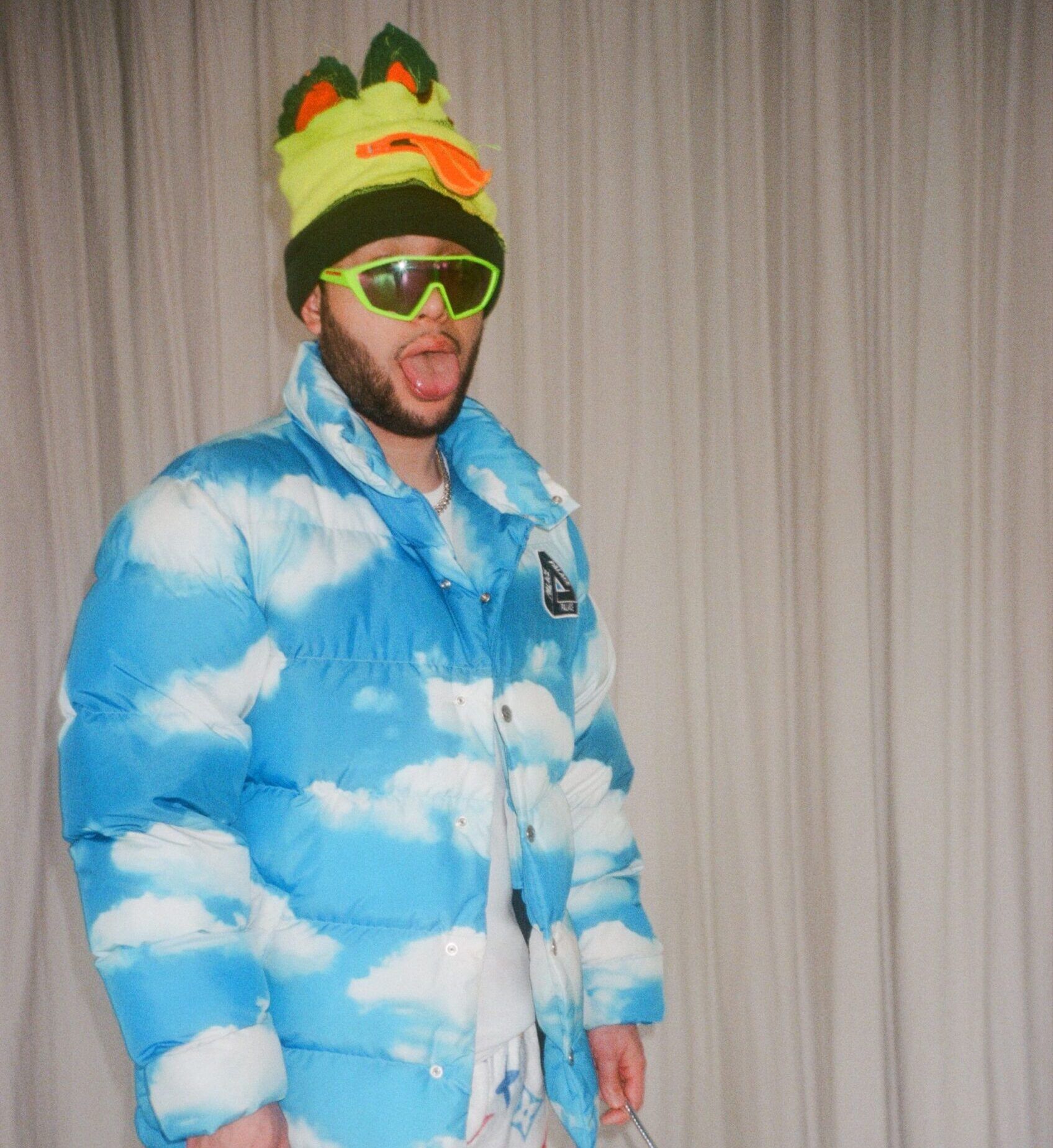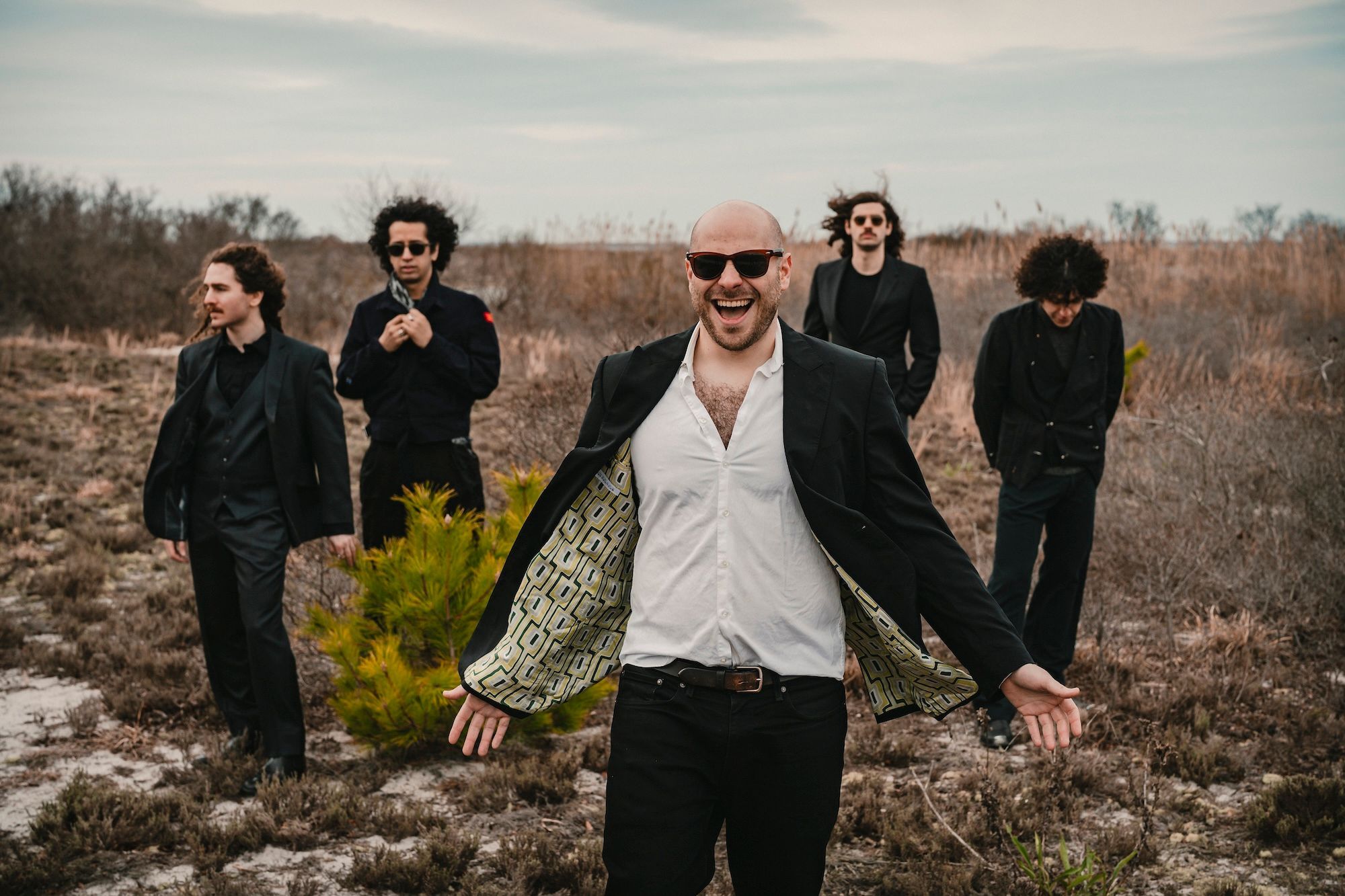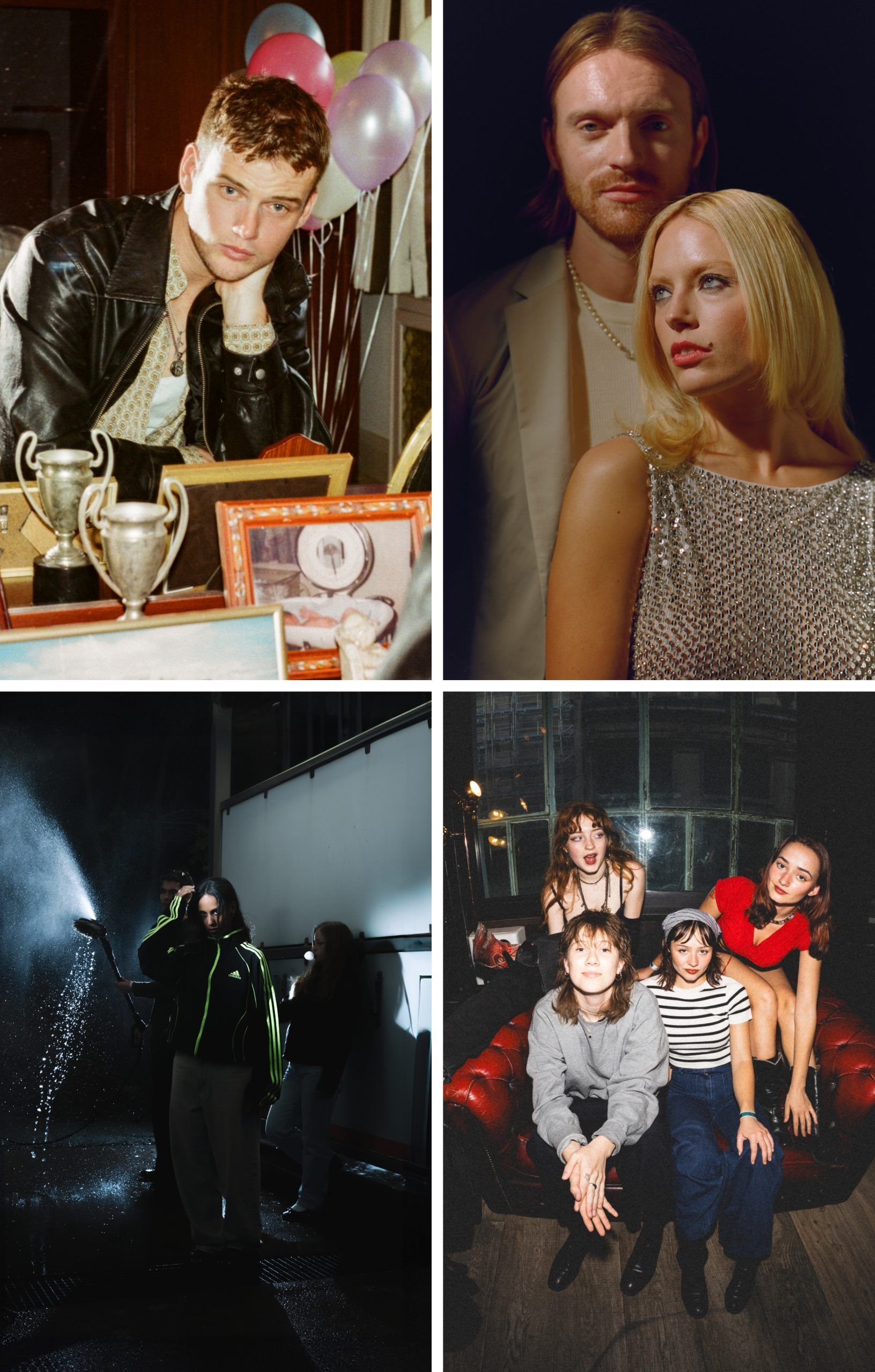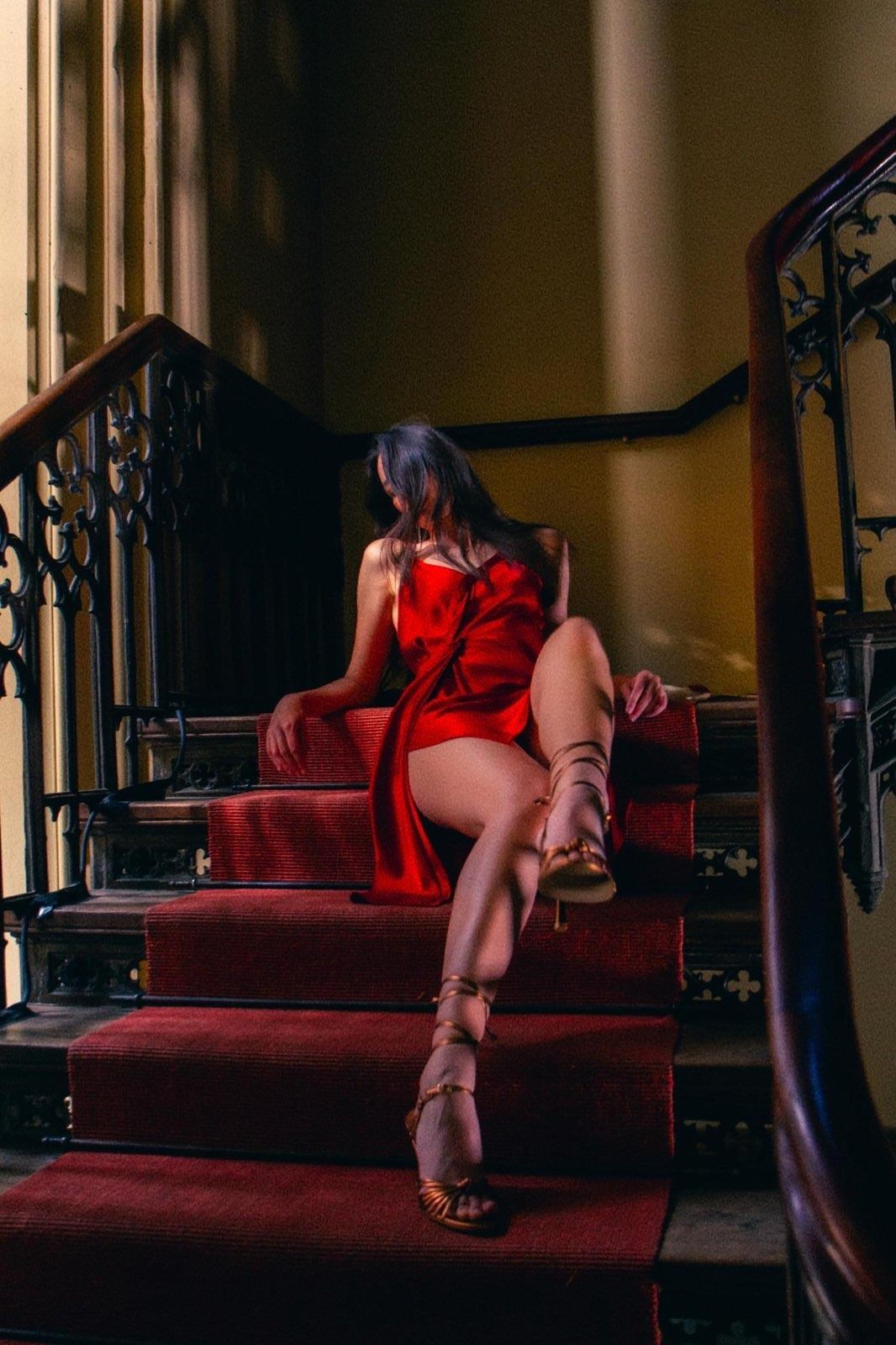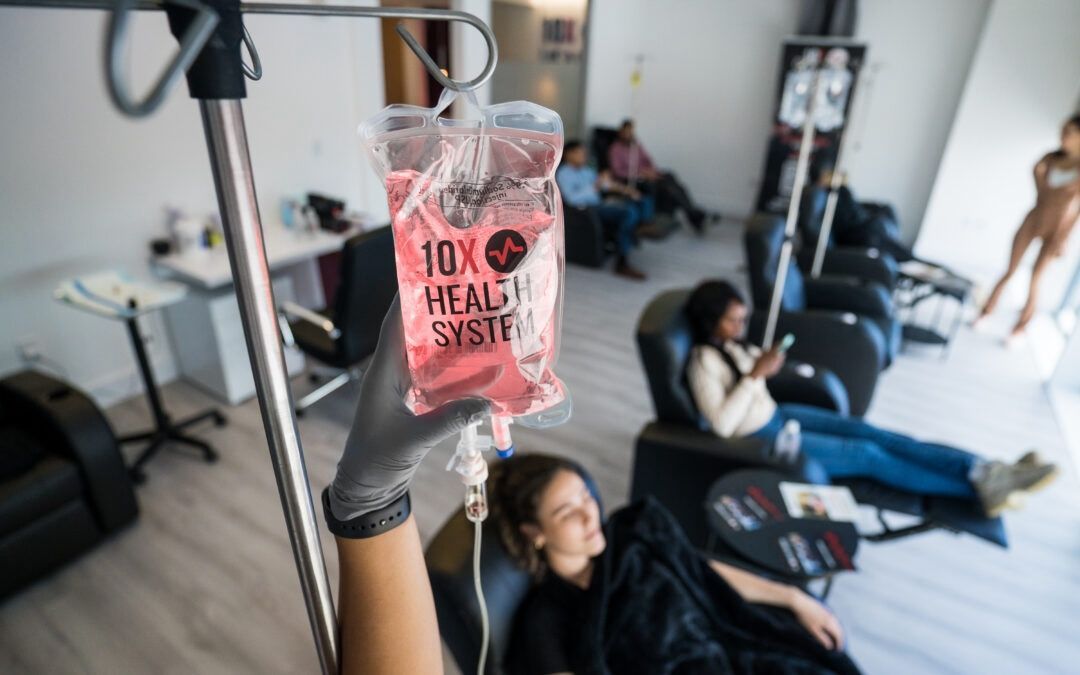Ahead of his upcoming EP, Jax Jones proves he truly has found deep joy and is ready to show it to others.
Over the past decade South London-born songwriter, producer and DJ Jax Jones has been a part of numerous hits on the radio, but music has been a major part of his life for even longer. Jones’ earliest memory is being taken to music appreciation classes as a child – a custom in keeping with his Chinese heritage. Although their relationship was one fraught with challenges and pain, Jax’s melodic palate only grew when his Nigerian step-father introduced him to Hip-Hop, Afrobeat, and Highlife. Although a turbulent home life and surrounding atmosphere in Brixton did not give Jones an easy upbringing, it left him with a drive to succeed in the space he had chosen. After taking 2020 to reflect on his past, his heritage, and the experiences that made him who he is today (which includes the recent birth of his daughter Lawana), Jax is returning to music with a new perspective.
His passion for not only his craft but also those around him shines through his new music, actions, and words. In this next phase of his career, Jones plans to apply the same drive that led him to his success within the dance music industry to help others achieve similar goals. His upcoming EP, Deep Joy is set to release under his new record label WUGD, created in partnership with his manager Dan Stacy and Polydor Records.
1883 spoke with Jax about this upcoming era, the importance of authenticity and what it means to have found deep joy.
Congratulations on officially starting this new era of your career. You previously said that the release of this single marks the end of the most transformative time in your life. How do you think you changed most since your last album Snacks?
I believe in myself now in a way that I didn’t before. Before, I had belief, but with a chip on my shoulder. I was more driven by a point I felt I had to prove to other people. I remember back in the day there was a — I can’t believe I’m quoting Will Smith! [laughs] I used to be a big Will Smith fan when I was young, but there was a Will Smith lyric that said ‘I take all the bad shit and use it as fuel.’ That’s what I felt like. On the surface I’m making party music, but underneath was just this desire to be someone. Whereas this time I’m doing it for myself; this time around it’s much less selfish.
What do you think was the biggest lesson you learned during that time?
What I love about being an artist is building something from nothing; seeing it through and then having it go out into the world where people receive it and react to it. I love that process. I’ve now learned that, as an artist, there is something special you bring to the table that makes you unique. You have a distinct creative vision and sometimes have to believe that obsessively. It’s important to follow through on those creative visions before people interfere. You’ve got to protect those visions with everything you can.
I like what you said in a recent Instagram post about wanting your music to exist for a reason. Did you find it easier to have fun with your music when you had a specific goal in mind besides creating a “hit?”
I’m always going to view things from a commercial perspective because that is built into me. I like pop music. I like music that travels. There was a Sophie quote that resonated with me – RIP Sophie. She said, “you know, you shouldn’t be afraid of pop music because pop music as a vehicle is powerful because it travels to millions of people.” If I’m going to be completely honest with myself, that’s what I want. I don’t make this music for it to live on my computer — I still actively try to be commercial. I think when you set yourself a brief, or there’s a reason for your music to exist, you don’t get obsessed about things that don’t matter. Especially the brief that I’ve set myself where it’s based on trying to be more authentic and translate a narrative that I want to offer to my listeners. What I do know is I talk directly from that first and then I edit later. I think you always get better results that way. You get something that pushes the conversation forward rather than something that fits [what’s already happening].
Yeah, I completely agree. I think anything based in authenticity makes a bigger impact long-term.
That’s the stuff that I see people singing out at my shows. When I think about my biggest records, they come from that place where you’re digging into your musical DNA that’s unique to you. Years ago, when I did I Got U for Duke Dumont, I knew very little about house music. All I knew was that I liked it. At the time, my wife and I had just started dating and I was just trying to translate that feeling. I did that with music. I kept seeing those viral videos of people walking down the aisle to Forever by Chris Brown. There was a dope Chris Malinchak track out at the time which had a similar feeling. The most romantic song I could think of at the time was My Love Is Your Love by Whitney Houston. I went about marrying all those things and trying to translate that loving feeling into it because you can’t make that shit up. The best music exists when you are trying to translate something, rather than trying to contrive a hit.
The EP is called Deep Joy. I know that that is something very important to you and that has a very specific definition to you. Talk about what Deep Joy is for you.
Deep Joy is a marriage of everything that I was experiencing over the last year. We got the lockdown. We got this time of pensiveness and I had a child — my daughter Lawana was born. When you have a kid you have to reflect on your own upbringing to translate that to your own child, even down to the music that you want to share. It brought up a lot of things that I knew I had to deal with. When I started facing that shit, I saw how much I viewed life in binary. I kind of missed that a bit where you learn nuances. I think in life there’s a beautiful subtlety where good and bad can exist at the same time. it doesn’t mean it’s the end. That’s where the deep joy comes from. The difference between joy and happiness is happiness is external and affected by external circumstances whereas joy is unwavering.
Additionally, I think this is an idea that everyone’s been talking about, we’ve had this unified oppression, whether it’s a pandemic or racist situation where whole communities feel oppressed. I’m just like, “Yo, I want to make the music that sums up this feeling of deep joy where there’s this positivity on the dance floor. Where we can all come together inclusively and just experience a primal feeling.
That’s one of my favourite things about music is it can just bring people together of all kinds of backgrounds.
And I think the music that does that the best is authentic music! That’s the thing.
The EP is heavily influenced by the music that made you who you are. Was it therapeutic to work back through your personal history via music?
It was difficult because I’ve quite a turbulent relationship with music. For me, there was a lot of sadness revisiting the songs that made me. There was hope and there was some escapism as well. But, growing up music was the way that I knew I could change my life. I always viewed it as a tool. Putting that back into this music the texture is different in the comments and the feelings I’m getting from the few people that have listened. It feels like for the first time people are seeing me and that’s what’s therapeutic about it.
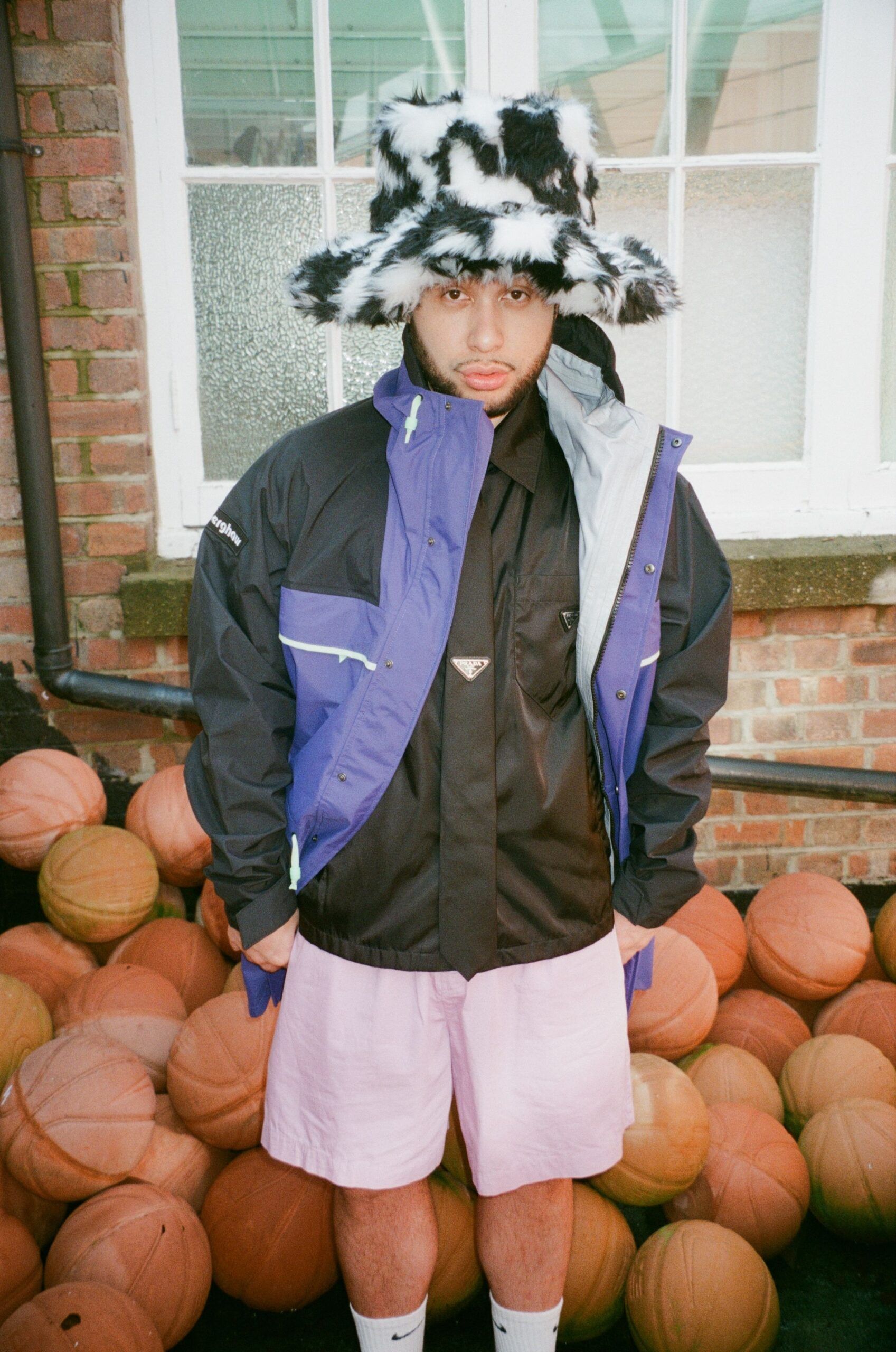
Who were some of the artists that you went back to? What kind of music did you grow up listening to?
I’m a deep R&B Head, hence why the first record samples After 7, which is a quite obscure R&B group. When Babyface (Kenneth Edmonds) was just running things, he wrote all this amazing R&B music, and this was one of them. I’ve dressed it in this quite bombastic house record because I like old-sounding house music rather than the polished stuff because it reminds me of rap. Rap in this golden era is what I grew up listening to. That kind of late 90s/early 2000s music. I wanted the first record to feel like that time in house music in the beginning. Where it felt very raw and people are discovering it.
Then the second record Crystalize. There’s a Coldplay influence on it. I hate to say it because there are so many cooler bands out there! [laughs] But honestly, people be lying if Coldplay doesn’t mean something to you! Coldplay knows how to do emotion and Chris Martin knows how to do emotion. I remember when I wrote Crystalize with Jem Cooke and Justin Parker, who did Lana Del Rey’s Video Games, it was a piano ballad. It was me processing. But, this isn’t selfish. I’m processing, but I’m also making it a banger. I linked up with Will Clark, who’s someone who I love in the US techno world, even though he’s a British guy. We made a version, similar to what you hear today where there’s a switch. I was obsessed with that Skrillex and Boys Noize record as well, so I wanted to do a switch.
Again, it just goes back to authenticity. it’s old-school references and new-school references. There are a lot of people I admired coming into music and a lot based on friendships as well.
I think that makes for something really fun and really special.
Thank you.
You come from a very diverse background and have a heavy history. Would you mind speaking about how your past impacted who you are today and by extension the EP?
As I mentioned earlier, growing up, a lot of my self-worth was defined by what value I could bring. I worked very hard at music because I felt like that was the only way I could be special. Then at the same time, it was tricky because I accessed music through my stepdad. He brought Dancehall or Rap, R&B and Highlife to my house. But we had such a turbulent relationship. It was very aggressive, to the point where I got kicked out. Music was the only way I could put food on my table at that point. I was playing guitar in different places. I learned graft in the process. Similarly, being a Chinese kid, you learn graft from your parents and you learn the value of hard work. Those experiences made sure that I made something of myself, even if no one gave a fuck. I get asked a lot if my parents are proud. The reality is I don’t really like that question because not everyone gets the fairytale. That’s why now I view my music as something I’m taking back for myself instead of doing it to make everyone else believe. I still apply that same hustle but more in a way where I want to get the perfect song. I want to get the perfect expression. The music is more free-flowing. I’m making more music than I ever have. I’m making more music with other people. I’m not afraid to collaborate. Even though I’ve done a shit ton of collaborations, I find them like a scary process. Now, I’m much more open and it means more music is getting done.
What would you say to someone who is currently going through similar hardships and wants to persevere and follow their dreams like you?
I can’t speak to everyone because there are nuances to everyone’s situation. I feel like sometimes general advice doesn’t work. You could say to someone ‘believe in yourself,’ but that’s a nuanced thing because everyone finds their belief in different ways. What I would say is just you’ve just got to figure out what drives you. Don’t be afraid of it, use it. Then put your blinkers on and just get your head down. When you reach that summit, take a breath because you’ll want the next summit after that.
You also recently became a father! What’s most surprising to you about fatherhood?
Through my daughter, I’m learning to be outside of myself. You feel like a true sense of love. Christianity talks about Agape love. It’s pure. But, at the same time, you get moments where you realize as a young child yourself you didn’t get that love. It’s also processing that. It’s a big challenge for me. Yet, when I see her, I just see hope with no baggage attached. I’m happy that I can provide the life that I didn’t have. It’s an amazing experience to be fair.
Let’s talk about your new record label, WUGD. Why was it important for you to start a label and what are you most excited about with this venture?
Starting at a point where I was told that I could never do music and I wasn’t good enough, then to sell 40 million records and then be in a position where I can partner with a major label. It’s a dope feeling! It means that I’m in a position where I’ve paid my dues. I have an informed opinion because I know and have confidence in what I’m doing. I can now positively uniquely impact the music industry. I’ve sat on all sides of the fence. I’m an artist now, but before that, I was a session musician and I was in a band signed to Atlantic and we made an album and were dropped after three years. I’ve been a manager. Being a producer, I can have a view of “okay this is what we need to do to get the best thing out there.” It’s all because of the hustle, because of the graft I was taught through my experiences. I just think I’m in a unique place. It’s great to just be rubbing shoulders in the owners’ box and to work from the inside. Now, I can change people’s lives. I can take a young talented person who might feel like no one believes in them and say, “I believe in you and I’m going to put money where my mouth is.”
The label exists to advocate for better diversity in dance music and giving opportunities to DJs from different countries and subcultures. That is a very noble goal and one born not only from necessity but also experience. As an Asian man- what has your experience within the dance music industry been?
Dance music has changed a lot over the years. It started as a Black genre and it had those messages of inclusivity. I think the genres have moved and now it feels very middle class and very White. I’m not a believer in affirmative action, but I do believe that sometimes that can mean talent might not reach where it’s supposed to. Perhaps because you don’t fit the current status quo. I think with someone like myself, where I feel like perhaps I could have been received better or if I looked a certain way, perhaps I could have travelled in certain circles more. There is cardboard out to international DJs sometimes. Now, with where I’ve built myself to, I can give people that cosign, which is valuable. I want to use the position I have to celebrate diversity and people that look all different types of ways and come from all different places. As long as the music’s banging, I’m going to champion them. Hopefully, I can do that enough times to start building cultures.
It sounds super exciting! I hope it all goes well. Lastly- What do you hope this new era holds, not only for you but also for your fans?
I hope this new era means more music for my fans. I hope by the end of it I have a deeper relationship with my fans where we’re healing each other. I want to look back on this collection of music and go, “that’s a body of work that I can be proud of and it’s going to stand the test of time because it meant something to me.” It’s about the legacy this time around.
Interview by Sydney Bolen
Feels, the new single by Jax Jones, is out now.

